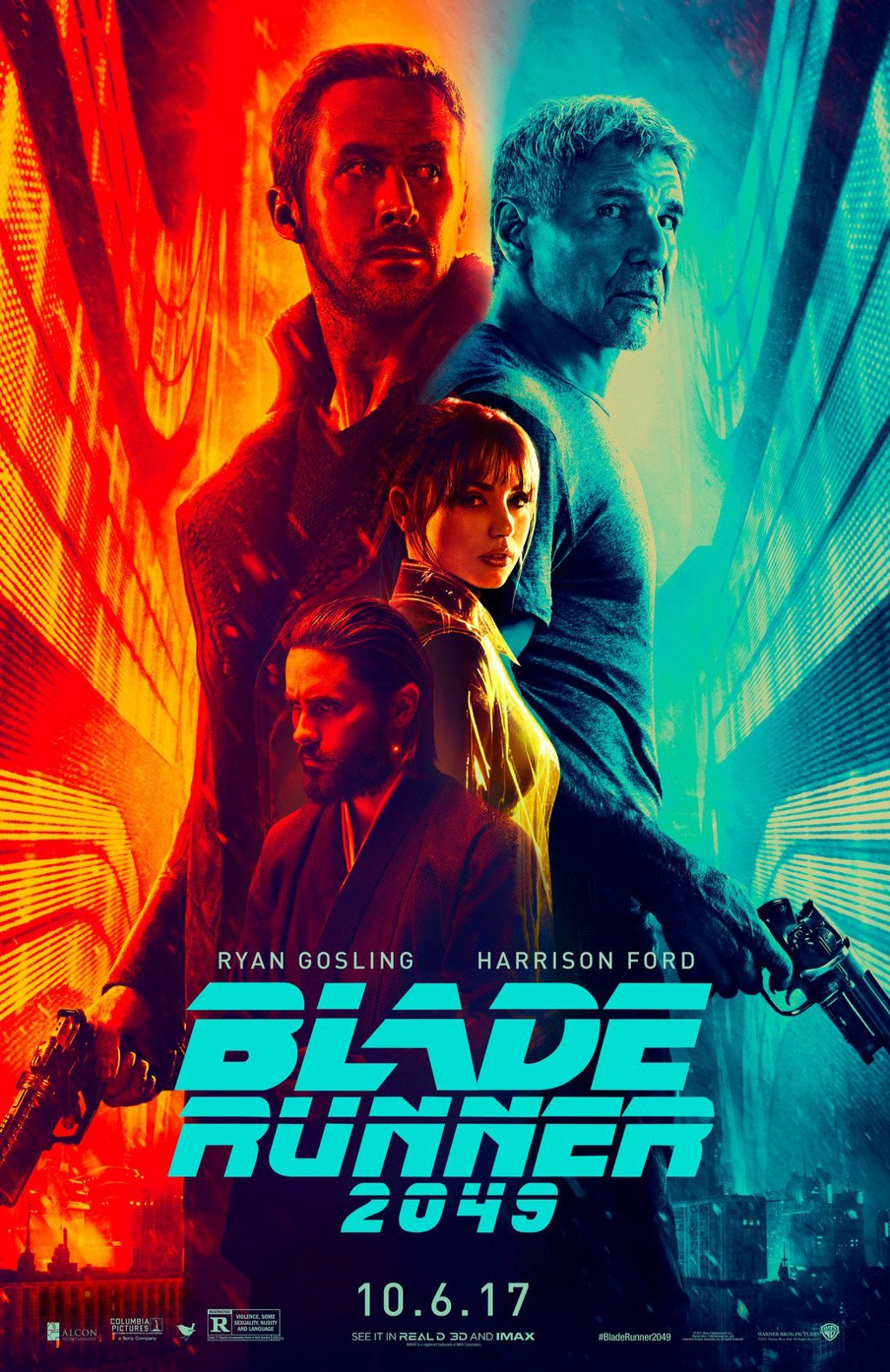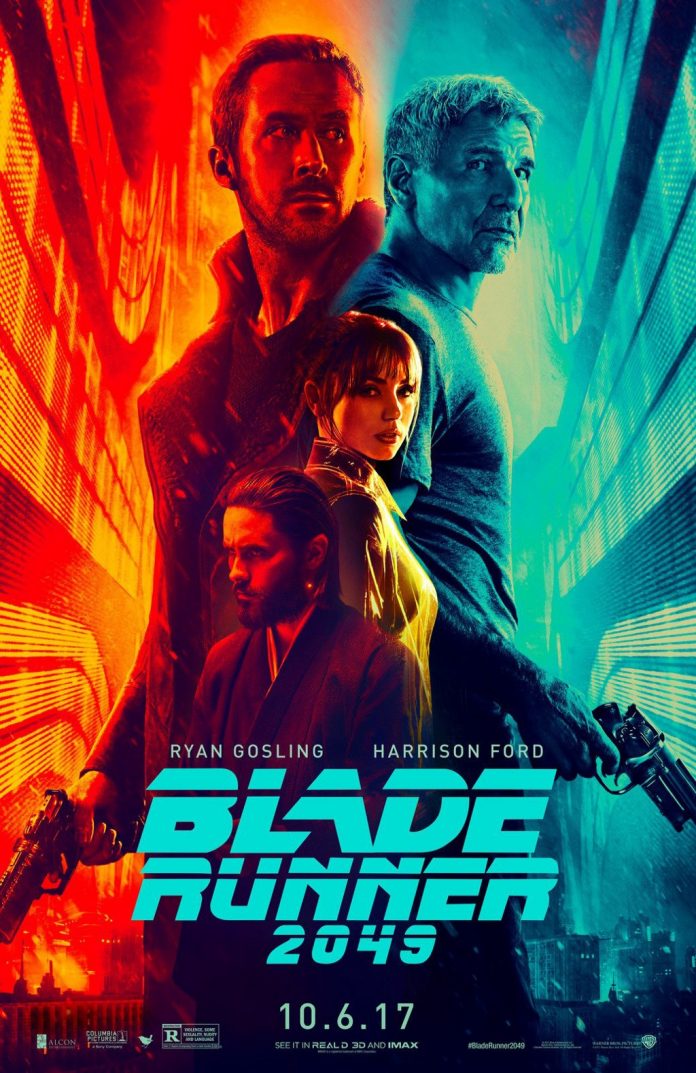The long-awaited sequel takes itself too seriously for a retread of common territory.

When the first Blade Runner released in 1982, it didn’t leave much of an impact. It barely earned back its production budget and received mixed reviews from critics. But the big-thinking, existential analysis wrapped up in a sci-fi ribbon became a cult hit through multiple re-releases, and is today regarded as a peak sci-fi creation.
But that success does not yield a $200 million blockbuster production released 35 years after the original. Denis Villeneuve’s Blade Runner 2049 proves two things: cult fame does not translate to mainstream success, and he does not know what year it is.
On paper, Villeneuve is the perfect match to direct a Blade Runner film. He’s recently directed Prisoners (2013) and Sicario (2015), as well as last year’s slow-moving sci-fi Best Pic nom Arrival. And he did prove to be an excellent choice for the job — every frame of the film is plotted meticulously, and the movie crawls with the same slow, awkward pace as Ridley Scott’s original. Tonally, it’s the sequel fans of the original could have only hoped for.
Perhaps some background knowledge is necessary, since Villeneuve and the movie’s marketing team overestimate how well known the original is. It starred Harrison Ford as Rick Deckard, a “blade runner” who hunts robots known as replicants. As replicants grow old, they tend to stop obeying orders from humans, making blade runners necessary. Both movies are set in a murky, cyberpunk future America that seems to depress everyone who lives in it.
It’s difficult to dispense plot details for the sequel — Villeneuve himself submitted a list of plot points he requests critics refrain from mentioning, which is extensive enough to make even a vague plot retelling impossible. Just know that in the sequel, Ryan Gosling steps in as the film’s protagonist in the same setting Deckard inhabited (surprisingly, this is Gosling’s first time leading an action blockbuster).
There’s a lot of clutter surrounding this movie, so I’ll cut right to the chase: it’s pretentious, and not worth viewing unless the audience is already invested in the original. With a running time going on three hours (it’s a dawdling 163 minutes, so maybe bring a blanket and pillow), the film asks a lot of its audience. It leaves vague clues intended to only make sense on repeated viewings (to assume it will be viewed more than once is a huge miscalculation).
Most of all, it demands an emotional response it never earns. Villeneuve is able to conjure up wondrous images in his films, and all technical aspects of the film (sound, cinematography, set design) are flawless. It’s clear he labors over every shot, and that alone makes him one of the hardest-working directors in Hollywood (the Best Director nom he earned for Arrival was well-earned).
Hampton Fancher and Michael Green’s screenplay probably reads more like a novel than a script for a film. Scenes play out with a zombie-like pace and a laser sharp eye for detail. Each scene feels like a short story or chapter in what is a long, laboriously put together novel.
But it’s emotionally vacant. The story assigns itself artificial important and depth, when all it does is rehash sci-fi themes thoroughly explored in recent years. Villeneuve went in assuming fans would be along for every step of the ride when he hasn’t earned that right.
And above all else, it’s a complete drag. Characters go off on monologues that have little relevance to the plot, and the story could have been told in about half the screen time. It expands on building the world well, but often fixates on unnecessary details for the sake of self-congratulation. In a word, the movie is boring.
Gosling is adequate in the lead role, but is never given much material to shine. Ford reprises his role as Deckard, but, contrary to what the marketing team would have you believe, is largely missing for most of the movie. Ford’s been phoning it in lately, and his appearance in the film seems more of a formality than a necessary continuation of his character’s story. Still, for what he’s doing, Ford has to place within the top 1 percent of reckless 75-year-olds.
Joe Walker’s sound design is fantastic. In the theater I was in, the seats shook with each resounding boom. Hans Zimmer co-wrote the soundtrack, so it goes without saying the music is excellent as well.
Another standout is Roger Deakins’ cinematography, which carries much of the weight of bringing the series’ unique world to life. The futuristic Los Angeles is breathtaking, and the film’s climax is a stunner on a visual level. Deakins is certainly the sequel’s MVP.
Villeneuve has all these elements at his disposal, but is unable to create the emotional punch he wants. The Blade Runner series is an anomaly — both films set out to humanize robots and artificial intelligence, trying to show us they can be just as human as we are. But for two movies in a row, the robotic storytelling has undercut its emotion. The result is a vacant would be mind-twister, and the time could be better used on other activities. Perhaps a nap. ••





